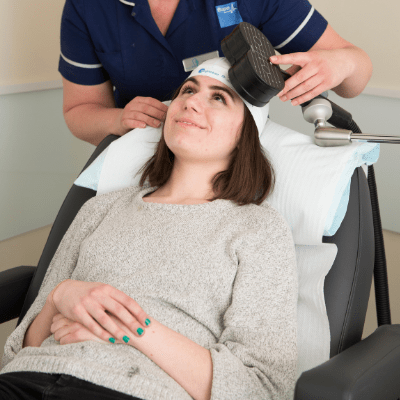Does having traits of Borderline-Personality Disorder Affect the likelihood of response to rTMS for Depression?
August 18, 2022 - Smart TMS

BPD can be debilitating
Borderline Personality Disorder (BPD) is a debilitating condition, carrying stigma and poor hope of recovery. It is characterised by intense unstable emotions, feeling empty, an inability to form stable relationships and low self-esteem. As a result, BPD can lead to co-occurring mental health issues, such as depression, eating disorders and self-harm. These comorbid issues tend to be more severe and often do not respond to standard treatments such as medication or psychotherapy.
Smart TMS research
Currently, research is lacking in reliable treatment options for those with BPD and co-occurring mental health issues. Thus, the research team at Smart TMS wanted to investigate whether BPD trait severity impacts a person’s chance of responding to TMS for depression.
94 patients (46 males, 48 females) were included in the study, and all scored above 9 on the Patient Health Questionnaire (PHQ-9), which indicates the presence of a depressive disorder. BPD traits were measured with a self-report questionnaire. This covered a range of behaviours and emotions, including impulsivity, fear of abandonment, self-harm and unstable relationships. Questions were scored 0, 1 or 2 to indicate severity and scores ranged from 0-18. All patients in the study received the same TMS treatment for depression and had a minimum of 15 sessions. At the end of treatment, PHQ-9 scores were taken and remission was defined by meeting a subclinical score of 9 or lower.
Analysing results
To analyse whether patients’ BPD trait scores impacted their PHQ-9 score at the end of treatment, the researchers used a technique called regression modelling. Regression allows you to determine the strength of the relationship between variables. So in this case, the regression model revealed how much the PHQ-9 scores changed, as BPD trait severity scores increased or decreased.
The analysis revealed no significant relationship between BPD trait scores and PHQ-9 scores at the end of treatment. This indicates that people with depression and high self-reported BPD traits have the same chance of responding to TMS depression treatment compared to those without BPD traits. This is an advantage over medication and psychotherapy, whereby response can be reduced due to co-occurring BPD traits.
Conclusion
This novel finding gives hope that alternative therapies, beyond the standard options, can be effective for more severe and complex conditions. Furthermore, the results of this study testify to the need for more research and funding of such therapies; improving recovery outcomes for the long-term is a necessity, and treatments, such as TMS, could be the answer.
Author, Rio,
Smart TMS Golders Green Practitioner










